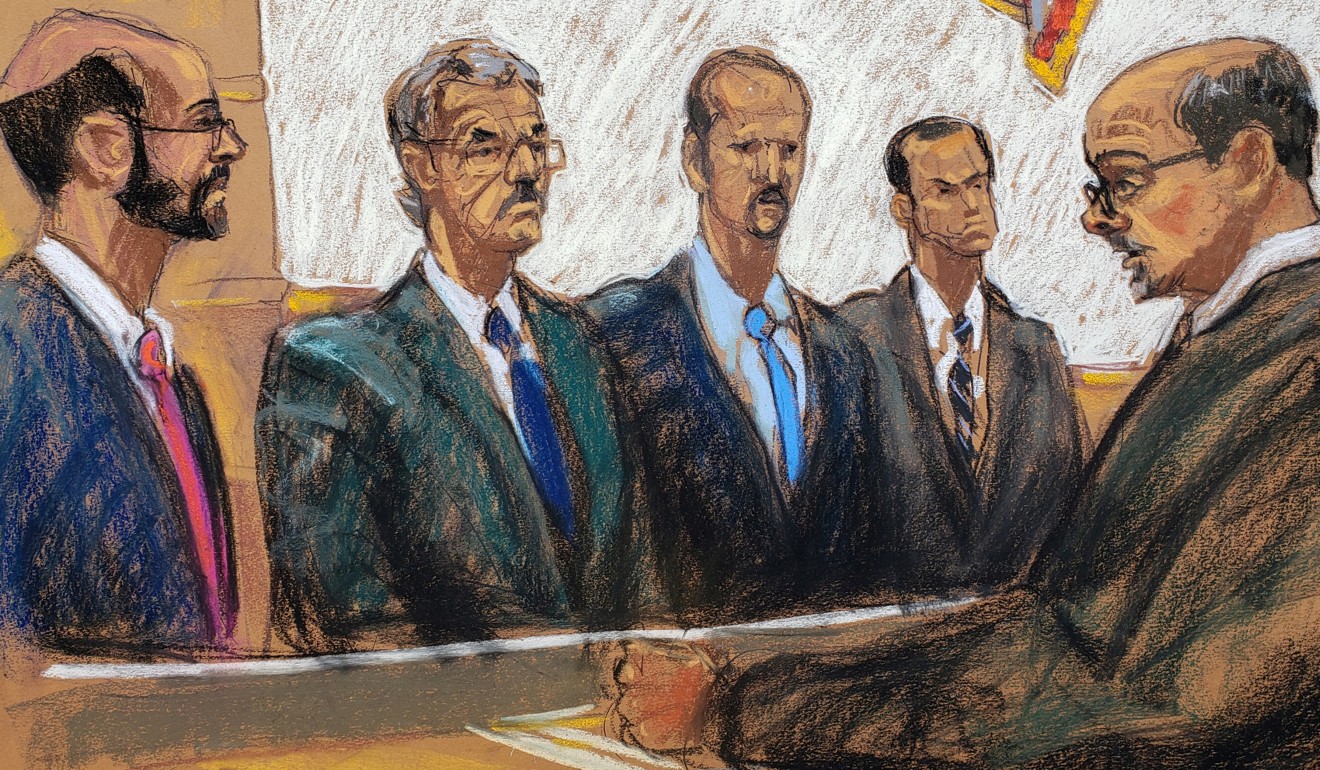
Huawei pleads not guilty to US charges of bank fraud and violating Iran sanctions in case that triggered a global firestorm
- The world’s largest telecoms equipment maker also faces charges of obstructing justice, becoming a lightning rod for Donald Trump’s tough China policies.
- A court process for the case is to be set at the next hearing on April 4
Huawei pleaded not guilty on Thursday to a 13-count indictment that alleged the world’s largest telecoms equipment maker defrauded US banks by concealing business dealings with Iran in violation of US sanctions.
James Cole, a US lawyer for Huawei, entered the plea on behalf of the company and its US subsidiary, Huawei Device USA Inc, at an arraignment in US District Court in Brooklyn, New York, according to US Attorney’s Office spokesman John Marzulli.
The plea launched the effort to defend Huawei against charges of bank and wire fraud. The company, based in southeastern China in Shenzhen, Guangdong province, and its US unit also are accused of defrauding HSBC and other banks by misrepresenting Huawei’s relationship with the suspected front company, Skycom Tech Co Limited, in Iran.
The lawsuit gained public attention in December with the arrest of Huawei CFO Meng Wanzhou by Canadian authorities in Vancouver, Canada in response to a US request for Meng’s extradition.

Multiple charges were announced against Huawei, Meng and affiliated companies. A federal grand jury in Brooklyn charged Huawei and Meng with money laundering, bank fraud, wire fraud and conspiracy. Huawei was also charged with conspiracy to obstruct justice.
A separate indictment from Washington state accused Huawei, Skycom and Meng of stealing trade secrets from the telecommunications company T-Mobile. The charges stemmed from a civil lawsuit filed by T-Mobile USA in 2014 over a robot nicknamed Tappy that was used in testing smartphones.
Heightened tensions between Washington and Beijing over their months-long trade war pushed both cases farther into the spotlight and led to Huawei being viewed as ammunition for the Trump administration’s hardline stance against China over its allegedly improper practices.
The Huawei case has sent a shock wave rippling across the US, Canada and the rest of the world.
Governments are under pressure to terminate 5G technology contracts with Huawei as the Trump administration repeatedly warns that the Chinese tech giant’s ties to Beijing pose a security threat to the US and other countries.
Pressured by the US Congress, top American universities are shunning research money from Huawei. Princeton University, Stanford University, Ohio State University and the University of California at Berkeley all said they were cutting or reducing ties to Huawei.
The arrest of Meng, a daughter of Huawei founder Ren Zhengfei, has weighed heavily on the relationship between China and Canada. A number of Canadians in China were arrested on various charges following the Huawei detention.
The Canadian government decided on Friday to move forward with proceedings to extradite Meng to the US. Meng said she is innocent of the charges and is fighting extradition. Meng is suing Canada and two federal agencies for detaining and interrogating her before declaring her under arrest.
The court development came a week after Huawei filed a lawsuit against the US government claiming the defendant overstepped its bounds when it banned the use of Huawei’s equipment by government agencies.
US authorities accused Huawei of using Skycom as its unofficial subsidiary to conduct business in Iran.
Assistant US Attorney David Kessler said at the arraignment that prosecutors were in the process of serving Skycom with the charges, and that the company was not yet scheduled for an arraignment.
The next hearing is scheduled for April 4, according to Marzulli.
At that hearing, US defence lawyers will present evidence and Ann Donnelly, the presiding judge in the case, will decide how the case is to proceed.

